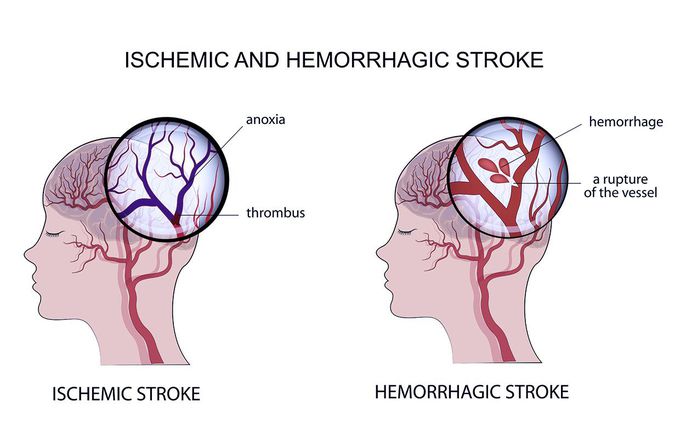

Iqraabout 2 years ago

Types of stroke
There are three main typesTrusted Source of stroke: Ischemic stroke: This is the most common type of stroke, making up 87% of all cases. A blood clot prevents blood and oxygen from reaching an area of the brain. Hemorrhagic stroke: This occurs when a blood vessel ruptures. These are usually the result of aneurysms or arteriovenous malformations (AVMs). Transient ischemic attack (TIA): This occurs when blood flow to a part of the brain is inadequate for a brief period of time. Normal blood flow resumes after a short amount of time, and the symptoms resolve without treatment. Some people call this a ministroke.
Other commentsSign in to post comments. You don't have an account? Sign up now!
Related posts
Dandy Walker Malformation | Diagnosis symptoms and treatment2-Minute Neuroscience: Brain AneurysmsSeizures (Epilepsy) Nursing NCLEX: Tonic-Clonic, Generalized, Focal, SymptomsStroke: Causes, Risk Factors, Treatment, and Prevention | Mass General BrighamApproach Stroke SymptomsNeurofibromatosisAbsence seizuresSymptoms of absence seizuresAcute Stroke ED Managementhttps://www.facebook.com/PrimalTRTOfficial/

